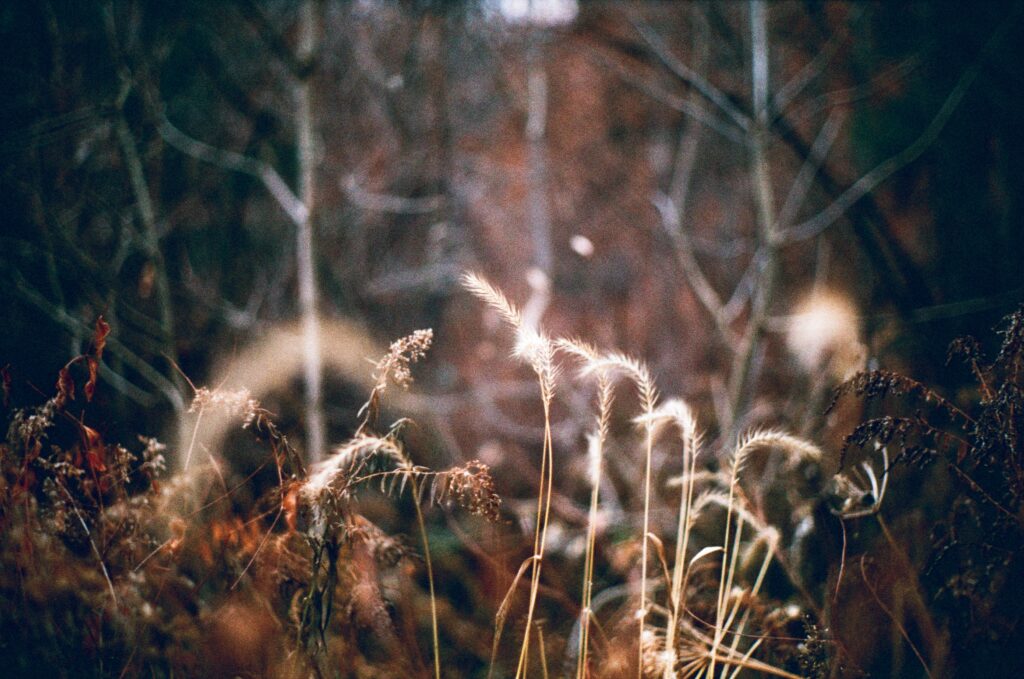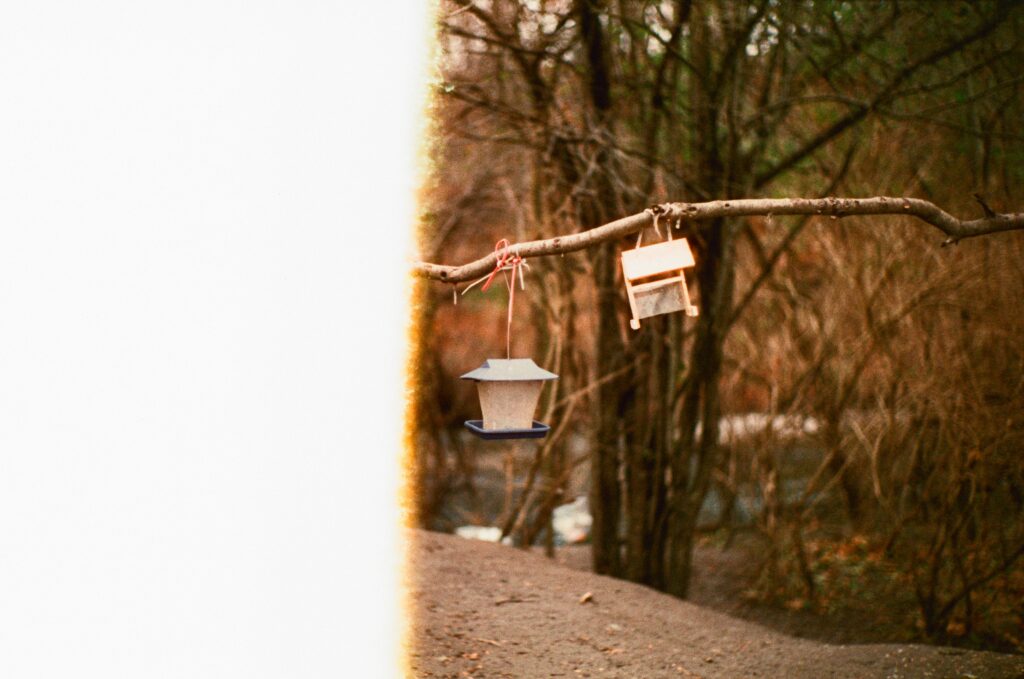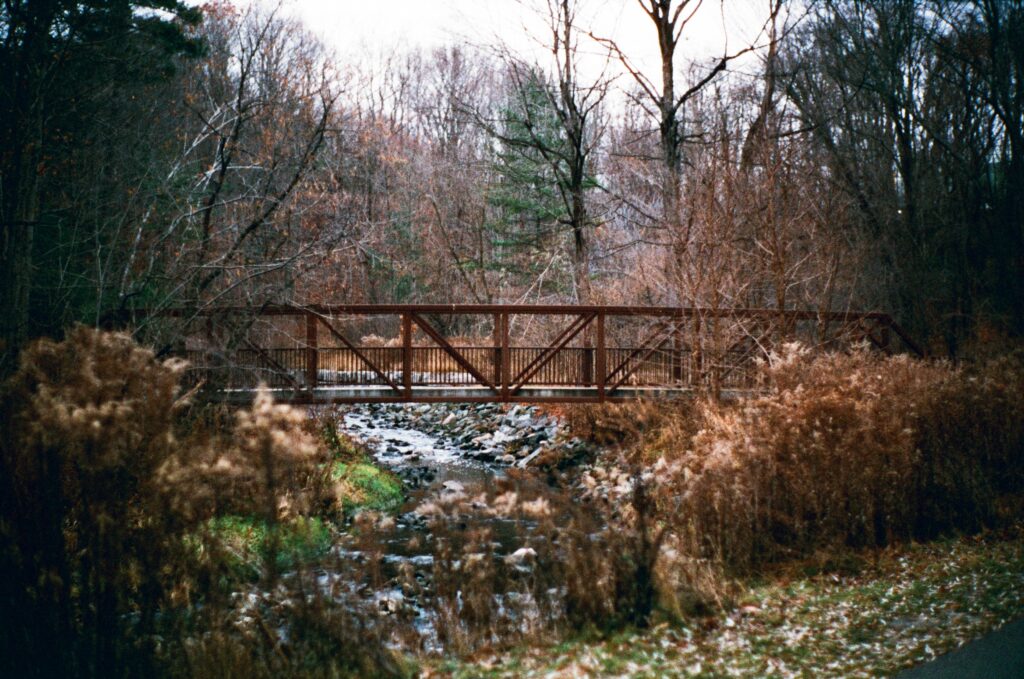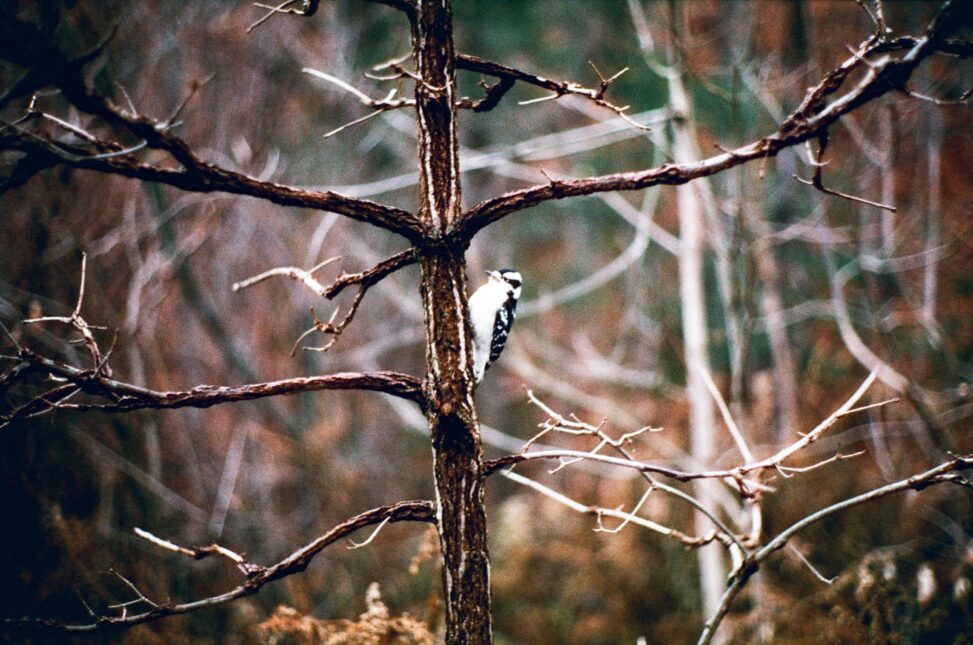At the time, I did not know that such concerns would not re-enter my mind for at least two months.
For in two hours after taking this photograph, the year would come to an end in turbulent fashion,
literally upending how days and nights were to be perceived.
Set in one of Toronto’s largest inner-city parks,
long before even the runners would set the trails ablaze with their heavy feet and punctuated exhalations,
I took a little time at sunrise before the day’s soon to be cancelled meetings to start the day right.

To start the day with fresh air instead of my morning newspaper.
To start the day by connecting with nature instead of the slew of overnight emails that flooded my inbox.
By breathing in deeply,
then holding my breath,
to steady my camera.
There still was not enough ambient light to properly expose the new experimental roll of film by Harman, Pheonix 200,
of which I was underexposing by two-thirds of a stop,
at anything less than an eighth of a second.
Suddenly,
without warning,
before I could press the shutter,
I had company.
I looked with my uncovered eye upwards to my right and there they were,
a band of female woodpeckers.
The troop’s Alpha then,
without hesitation,
flew directly in front of me and onto a branch.
Exactly at my vintage rangefinder lens’ minimum focusing distance of one metre.
The leader of this posse was unnerved by my camera’s near-silent shutter.
Her confidence,
however,
was quickly being replaced by impatience.
This self-assurance in approaching (mostly) hairless apes was built on the learned behaviour from the recent pandemic years.
Armed with boredom,
and dried goods such as nuts and items that were thought of as suitable substitutes for bird feed,
the city’s citizens descended upon its parks and trails.
Social media posts of outstretched selfies and photographs of birds in human palms grew in popularity.
The result was a learned reliance on us complicated mammals for the occasional snack,
or in the case of the more aggressive birds,
if harassed enough,
an entire meal could be cajoled.

Acts of charity are repeated most when dopamine enters the equation,
and being adorable unlocks its repetition.
Shame also helps,
with gratuities now announced to the world at cafés after customers are finished paying on large register screens,
one would not be caught dead,
only tipping one dollar for an eight-dollar heated milkshake masquerading as a coffee.
At the time, on that late November morning,
on my walk,
the topic of migration
and charity,
and how fallacies built around them persisted.
They persist in groups looking to capitalize on tribalism,
and to build a base without a strong footing.
First,
history has proven that a nation with an unvaried population does not lead to a more peaceful society.
Second,
migration does not result in crippling a nation that itself is not already experiencing a crippling economy.
The on-the-face-of-it kindness that this city’s citizens had shown towards these creatures amazed me.
Though the city itself is extremely diverse,
attitudes towards those who migrated from foreign lands remained disturbing,
and upsetting to the point where my morning walk was sullied.
“These people are only talking to you for your money,” said an acquaintance a week earlier, learning that I had a friend from Ethiopia.
“They’re all twisted and conniving people. They settle themselves next to our most vulnerable and take advantage of them while we are too distracted with trying to make a living for ourselves,” said a woman to a social worker as she struggled to come to the reality that her father’s apartment would be visited upon personal support workers from East Asia and Central Africa.
Outside of these two glaring examples,
there were many more that I had heard over the last three years alone.

On that morning,
the transactional approach towards kindness and charity broke my heart,
for this path is damaging.
These little creatures had learned that dive bombing in front of a passing human could result in free calories.
Yelps could be heard near community bird feeders as certain species such as these female woodpeckers would go straight to the source of the food and not the suspended wooden homes.
Will they adapt back to fending for themselves?
How many generations of woodpeckers would suffer from wasted calories and attempts for food from non-compliant apes such as myself?
“Canadians are all racists,” said another friend in the spring of 2022 in response to the strewn of Ukrainian refugees flooded airports in Western nations.
Herself, a recent refugee from a Central African country,
commented as to how those who looked like the nation’s incumbents were greeted with open and warm hearts,
all the while,
her family was and still is treated with a suspicion that underlies every interaction she has in Canada.
When it comes to acts of kindness and charity towards humans,
the transactions that result in feeling better about oneself succeed.
This too,
is damaging.
Upon finally having the time to develop the roll of film from that morning,
the transactional nature of our kindness once again filled my mind,
as now my brain finally had the time to lift its “No Vacancy” sign for such matters.
As the days once again resembled actual days,
and the nights once again became nights,
I again had the time for such nonchalant transactional thoughts,
as I once again visited our parks,
still fully encumbered,
but in the light of day.

Time of writing: January 25th, 2024
Photographs made with Harman Phoenix 200 shot at ISO 160 and developed at box speed, with the Leica 50 Summilux Version Two, and the Leica M6
